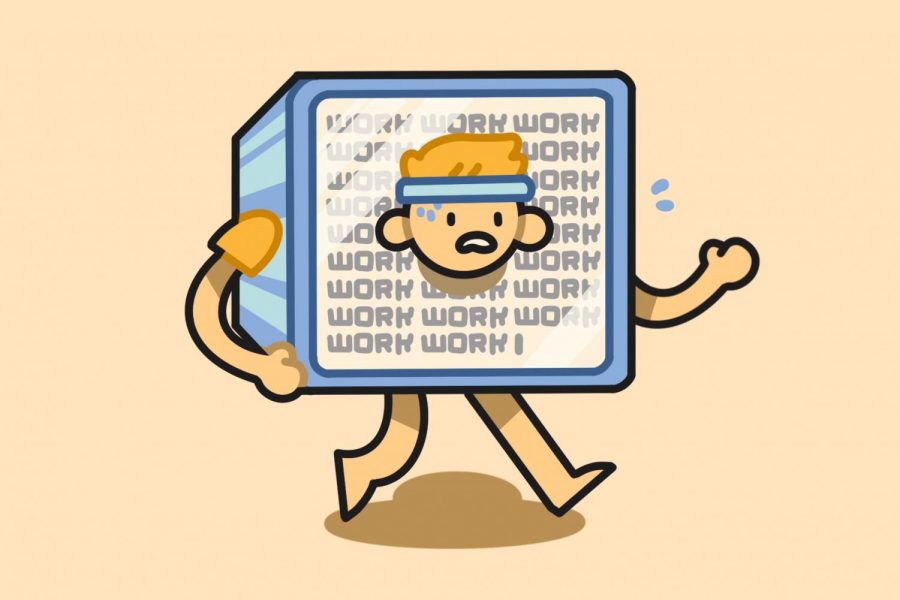OPINION | Email from School of Architecture promotes unhealthy, dangerous behaviors
Tulane School of Architecture, along with academia in general, perpetuates a toxic work culture
On Sunday, Sept. 13, Iñaki Alday, dean of the Tulane School of Architecture, sent an incredibly callous email about the School of Architecture’s new policy regarding working expectations during the COVID pandemic. Shared on Twitter by @solidarityTU, the email announced to students that they were expected to move into their studio space in Richardson Memorial Hall following the university’s closure for Hurricane Sally.
Alday supports this new policy through a variety of supposedly sound arguments; he claims that Tulane has the lowest COVID-19 risk within New Orleans, the experience of being surrounded by peers in the studio will make students “happier” and therefore more productive, the general lack of motivation and inspiration befalling the Tulane architecture community is a consequence only of working from home, and that all experts unanimously agree getting back to normal is the best plan. He finishes his flawed argument by insisting that all involved in this decision care about students more than they believe.
Each of these claims, portrayed as unobjectionable truths, have either dubious logic, harmful ideological assumptions or both.
For one, insisting that Tulane is the safest place within the city based on positivity rates that appear relatively low in comparison to the greater city rate and the rate of a state as a whole ignores the methodology behind testing numbers. Tulane, with a seven-day average positivity rate of 1.1%, is requiring mandatory testing twice a week for on-campus students, once a week for off-campus undergraduate students and monthly testing for all employees and graduate students.
This means the primary motivation factor for getting tested is not a belief that one might have the disease due to symptoms or close contact with a confirmed patient, as it is for the greater New Orleans and Louisiana populations, but instead adhering to policy. Consequently, the lower positivity rate of testing does not naturally conclude that Tulane is safe from the threat of COVID-19.
The other claims within the email are reflective of toxic ideological presumptions regarding productivity and work ethic as values of utmost importance. While the taxing mental health effects of current circumstances are acknowledged, they are posited as a problem with a simple solution: continue to work as hard as you did before the pandemic.
The idea that putting yourself in a dangerous environment is a clear solution to mental health ignores the psychologically taxing nature of such a toxic work-life balance. If the circumstances of the world, including the possibility of getting an unfamiliar and threatening disease, are anxiety inducing, elevating the possibility of getting that disease is clearly not the solution. Importantly, it should be noted that the email does not posit mental health issues as a problem, rather a cause of the bigger problem: decreased productivity.
Alday’s illogical claims of caring for students while requiring them to put themselves in danger in
order to regain productivity reeks of condescension. It is egregiously out of touch and reflective of the overall toxic overvaluation of productivity and consistent labor that have exacerbated the unfamiliarity of the last six months.
Your donation will support the student journalists of Tulane University. Your contribution will allow us to purchase equipment and cover our annual website hosting costs.



